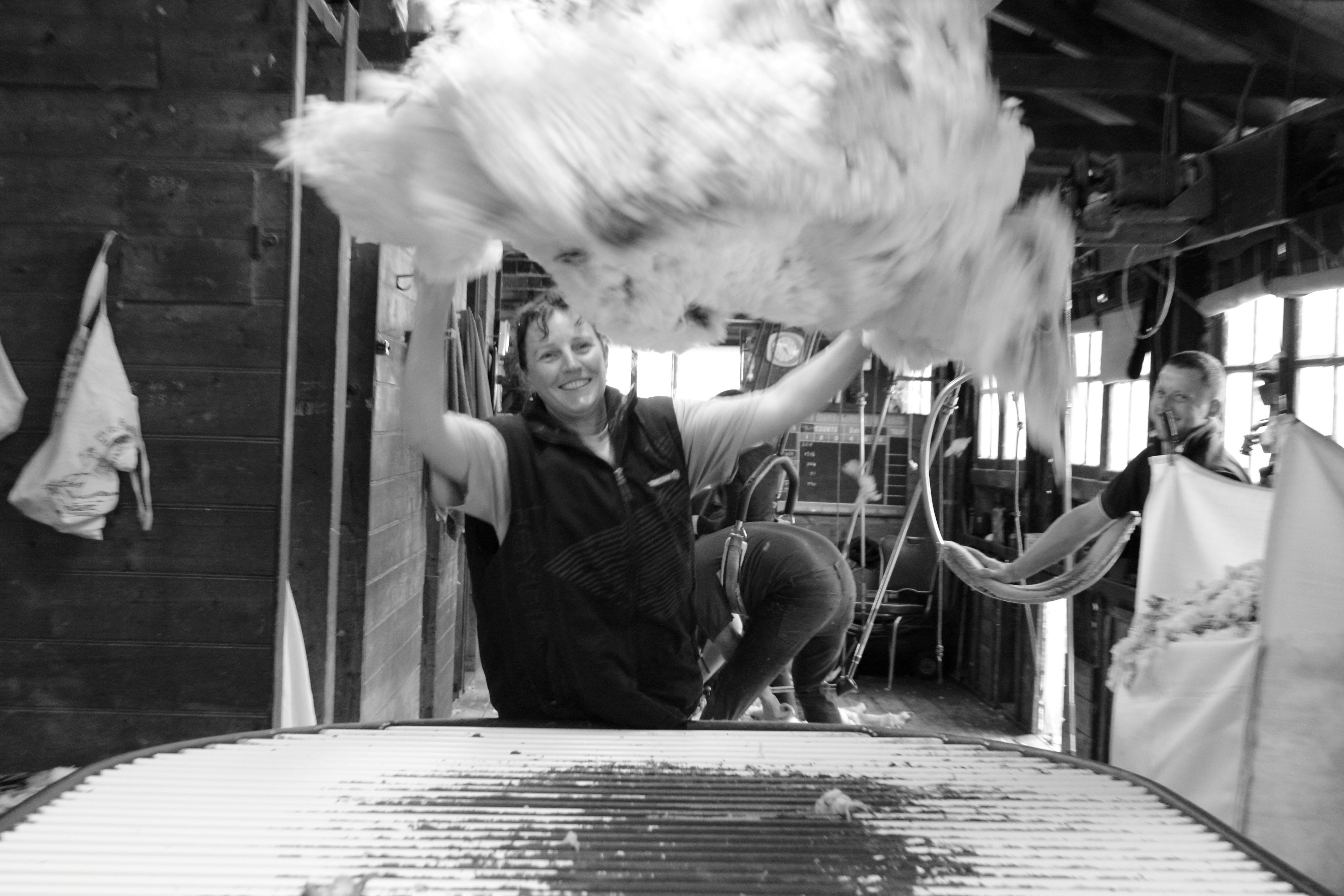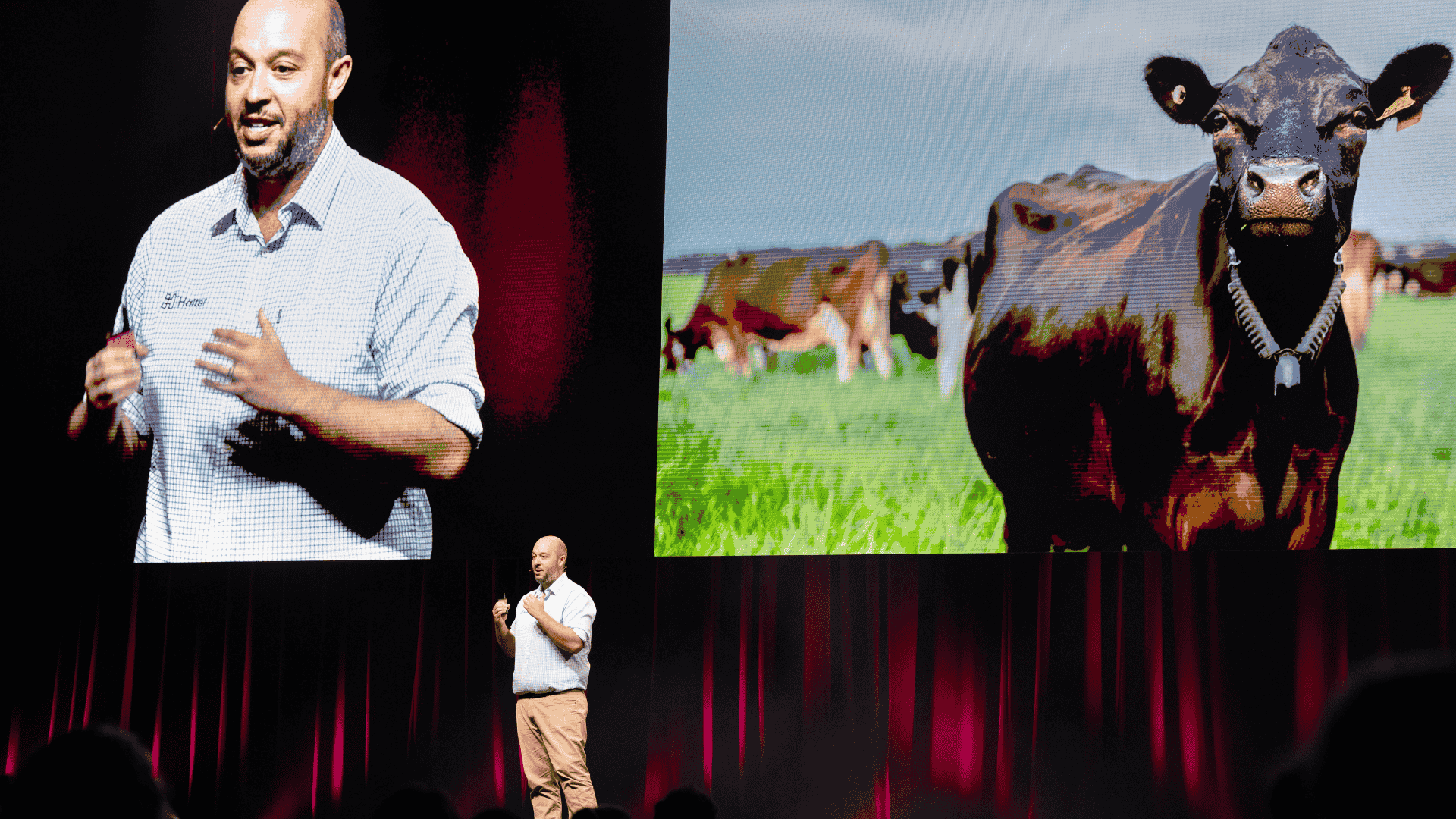Virtual fencing gets green light at ag tech event
Virtual fencing has been given the green light in Victoria, with Halter’s P5 electronic collar system on Wednesday becoming the first technology...
3 min read
 Alex McLaughlin
:
Jun, 30, 2025
Alex McLaughlin
:
Jun, 30, 2025

Respected Master Wool Classer and Trainer Raelene Laidlaw has been recognised for her extraordinary contribution to the Australian wool industry, receiving the prestigious Career Legacy Women in Wool Award at the inaugural Women in Wool Association Gala Ball.
The award, sponsored by renowned Italian mill Vitale Barberis Canonico, was presented earlier this year.
With a career spanning more than four decades, Mrs Laidlaw has become a cornerstone of the Australian wool sector. From early beginnings in Warrnambool, Victoria, working alongside her grandfather, Mrs Laidlaw has now been a registered Wool Classer for 38 years, and for the past 16 years, has held the distinguished title of Master Wool Classer.
.jpg?width=4032&height=3024&name=Race%20Point%20John%20and%20Michelle%20Jones%202023%20(6).jpg)
Mrs Laidlaw has played a vital role in shaping the next generation of wool professionals, equipping students with the knowledge and skills they need to succeed in wool production. Pic: Supplied
For more than a decade, she has also dedicated herself to education, serving as a Trainer with the Rural Industries Skill Training (RIST) organisation, where she has helped prepare the next generation of wool professionals.
Her knowledge and leadership have taken her across the country — from Victoria and Tasmania to New South Wales and Queensland — and further afield to the Falkland Islands, where in 2024 she supported local growers in standardising wool clip preparation to meet international benchmarks.
Mrs Laidlaw has also represented Australia on the global stage as a Wool Handling Judge at the Golden Shears in Masterton, New Zealand, and the World Shearing and Wool Handling Championships in Le Dorat, France. Her impact is as broad as it is deep.
.jpg?width=2667&height=2000&name=7.6.19%20Le%20Dorat%2c%20World%20Titles%20%20(28).jpg)
Mrs Laidlaw (front right), with the Australian team at the World Shearing and Wool Handling Championships in Le Dorat, France. Pic: Supplied
Equally committed to leadership and advocacy, Mrs Laidlaw has volunteered her expertise to industry bodies for more than 20 years.
Her roles have included acting as an Industry Advisor for Australian Wool Innovation’s (AWI) WoolQ platform and delivering the AWI Wool Overview Program, which introduces high school students to careers across the wool supply chain.
She has also contributed extensively to Sports Shear Australia, promoting ethical and sustainable harvesting practices.
First learning to class wool at just 19 years of age, Mrs Laidlaw credits her early development to the support of a patient grower and a willingness to embrace the full scope of the job.
“When I started, the classer actually did everything,” Mrs Laidlaw said. “We had to run the team, calculate and pay wages, set the grinders — it was all part of the job.”
While much has changed since then, Mrs Laidlaw believes today’s wool classers benefit from a stronger emphasis on proper technique, particularly in shearing. She’s also observed a shift in sheep genetics and shed throughput.
“There’s an increase in sheep numbers going through sheds, and a lot of that’s due to breeding changes,” Mrs Laidlaw said.
“And education has improved too. A lot of shearers now are doing around 200 a day, which wasn’t common when I started.”
Mrs Laidlaw currently coordinates a local shearing school and the Wool Overview Program, introducing 35–50 high school students annually to the many careers available in the wool sector.
“We try to encourage schools to send students who aren’t necessarily from farms,” Mrs Laidlaw said.
“They’re always amazed at the opportunities in agriculture. They just didn’t know the breadth of it.”
When it comes to what makes a successful wool classer, Mrs Laidlaw believes the essentials are simple but critical: communication, teamwork, attention to detail, and a genuine love for the job.

Looking to the future, Mrs Laidlaw remains hopeful, but realistic about the challenges the industry faces. Pic: AgriShots
High labour costs and declining profitability from wool shearing are concerning trends.
“One of the biggest challenges we’ve got at the moment is the cost of shearing versus returns,” Mrs Laidlaw said.
“Some growers are barely able to keep their sheep alive at the moment, let alone afford to shear them.”
Mrs Laidlaw also believes the industry must do a better job of telling its story to the public.
“We’ve got to let consumers know that we genuinely look after our animals. That story needs to be told.”
She’s already seeing ripple effects — with some large-scale growers choosing not to join ewes this season and others cutting flock numbers significantly.
“That could create future demand due to reduced supply, but if the economics don’t stack up, those growers may not restock. That’s a serious long-term concern.”
In addition to her training and advocacy work, Mrs Laidlaw runs her own wool product business, Aussie Pure Wool and Bedding, using locally sourced wool processed in Geelong to create Australian-made goods that highlight the fibre’s versatility well beyond clothing.
“I want people to understand just how good wool is — what we can do with it, if we take care in its preparation. It’s versatile, it’s sustainable, and it’s something we should be proud of,” Mrs Laidlaw said.
Accepting the Career Legacy Award, Mrs Laidlaw expressed heartfelt gratitude for the honour.
“I’m incredibly honoured to receive the Career Legacy Award,” Mrs Laidlaw said.
“The wool industry has been my life’s work, and I feel privileged to have played a role in its growth. I look forward to continuing to mentor the next generation and ensuring Australian wool remains a global leader.”

Virtual fencing has been given the green light in Victoria, with Halter’s P5 electronic collar system on Wednesday becoming the first technology...
.png)
What if the real issue with “kids not stepping up” isn’t them at all?In this episode, Ben Law sits down again with high-performance advisor Chris...
.png)
As Victorians begin the long recovery following devastating bushfires which burnt more than 400,000 hectares, a pair of contract...